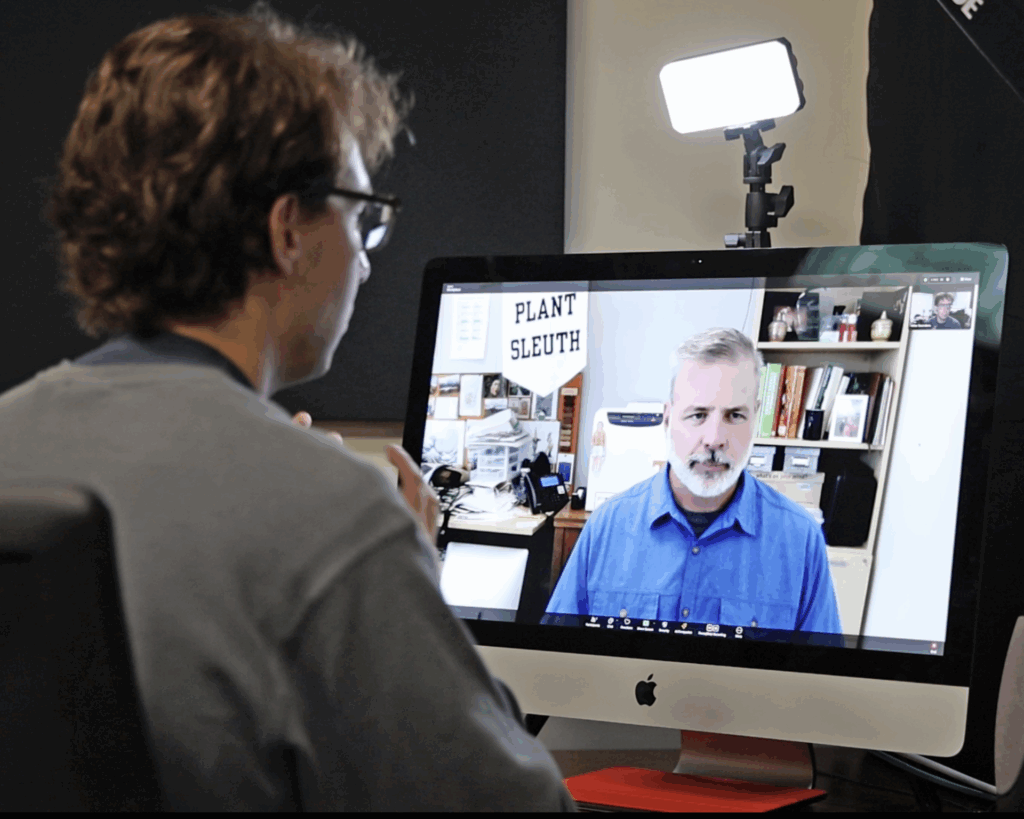Jack Mellom
Multimedia Fellow
produced by: Boston University School of Public Health
produced by: Boston University School of Public Health
As sport participation advances, the mental stakes increase, with more than half of U.S. college athletes reporting being “very lonely.”
About 40% of adults living with chronic pain had clinical depression and anxiety, compared to about 15% of people without chronic pain.
Nationally, 21% of caregivers reported that their child had unmet mental health needs, and 46% reported difficulty in accessing care.
Adolescents with mood disorders were more likely to use cannabis and become dependent on it than their peers without mood disorders.
People with depression received new health diagnoses 32% faster than those without depression, highlighting the need for coordinated care.
Join over 14,000 subscribers receiving our weekly email newsletter.
Executive Editor Monica Wang reflects on the state of public health over the last year, how PHP met the moment, and where we hope to go next.
A recent intervention in Wisconsin shows that a quick phone call can increase Medicaid renewals and prevent lapses in coverage.
Recent NIH funding cuts, especially to minority health research, are reversing commitments to equity and deepening health disparities.

Jack Mellom is an MPH candidate at Boston University School of Public Health, studying health communication and promotion. His passions include promoting public health through new mediums in hopes of making its dissemination digestible for all. He has a background in plant sciences, which has given way to his love of public horticulture being used to improve health, as well as his love of plants. His favorite tree is the Live Oak. Outside of his public health work, Jack loves all things music, his favorite artist being Vampire Weekend.
Multimedia Fellow
Jack Mellom is an MPH candidate at Boston University School of Public Health, studying health communication and promotion. His passions include promoting public health through new mediums in hopes of making its dissemination digestible for all. He has a background in plant sciences, which has given way to his love of public horticulture being used to improve health, as well as his love of plants. His favorite tree is the Live Oak. Outside of his public health work, Jack loves all things music, his favorite artist being Vampire Weekend.

Bernadette Carter-Salmond is an MPH candidate at Boston University School of Public Health, studying health communication and promotion. Some of her public health interests include mental health, sexual and reproductive health, substance use, and environmental justice. She is especially passionate about how public health issues intersect with vulnerable populations. In her free time, she enjoys watching anime and sports, meditating, and going to comedy shows.
Writing Fellow
Bernadette Carter-Salmond is an MPH candidate at Boston University School of Public Health, studying health communication and promotion. Some of her public health interests include mental health, sexual and reproductive health, substance use, and environmental justice. She is especially passionate about how public health issues intersect with vulnerable populations. In her free time, she enjoys watching anime and sports, meditating, and going to comedy shows.

Mallika Chimpiri is an MPH candidate at Boston University School of Public Health, studying epidemiology and biostatistics. Her interest in public health stems from a passion for clinical medicine and exploring how various determinants can intersect to manifest population-level disease. In her free time, Mallika can be found reading fiction, rewatching comfort shows, or taking portraits of her friends.
Writing Fellow
Mallika Chimpiri is an MPH candidate at Boston University School of Public Health, studying epidemiology and biostatistics. Her interest in public health stems from a passion for clinical medicine and exploring how various determinants can intersect to manifest population-level disease. In her free time, Mallika can be found reading fiction, rewatching comfort shows, or taking portraits of her friends.

Rowena Lindsay is an MPH candidate at Boston University School of Public Health, specializing in epidemiology & biostatistics and health communications. She is passionate about reproductive and environmental health. Her background is in science journalism, and as both a writer and public health practitioner, she aims to empower people to make informed decisions in all aspects of their lives. Outside business hours, you can find her hiking, practicing yoga, and listening to audiobooks while crafting.
Writing Fellow
Rowena Lindsay is an MPH candidate at Boston University School of Public Health, specializing in epidemiology & biostatistics and health communications. She is passionate about reproductive and environmental health. Her background is in science journalism, and as both a writer and public health practitioner, she aims to empower people to make informed decisions in all aspects of their lives. Outside business hours, you can find her hiking, practicing yoga, and listening to audiobooks while crafting.

Aidan Stotz is an MPH candidate at Boston University School of Public Health, studying epidemiology and biostatistics with a concentration in chronic and non-communicable diseases. He is passionate about cancer epidemiology, particularly pediatric cancer research, and examining how social determinants shape health inequities. His experience includes rural and urban mental health, data analysis, and social justice advocacy. In his free time, he enjoys reading, discovering new music, and thrifting.
Writing Fellow
Aidan Stotz is an MPH candidate at Boston University School of Public Health, studying epidemiology and biostatistics with a concentration in chronic and non-communicable diseases. He is passionate about cancer epidemiology, particularly pediatric cancer research, and examining how social determinants shape health inequities. His experience includes rural and urban mental health, data analysis, and social justice advocacy. In his free time, he enjoys reading, discovering new music, and thrifting.

Michael Stein is the dean ad interim at Boston University School of Public Health, editor-at-large for Public Health Post, and author, most recently of the books Me vs Us: A Health Divided, Accidental Kindness: A Doctor’s Notes on Empathy, and The Turning Point: Reflections on a Pandemic with Sandro Galea. He is a physician and health services researcher who is an international authority on the intersection of primary care, mental health, and substance use disorders.
Editor-at-Large
Michael Stein is the dean ad interim at Boston University School of Public Health, editor-at-large for Public Health Post, and author, most recently of the books Me vs Us: A Health Divided, Accidental Kindness: A Doctor’s Notes on Empathy, and The Turning Point: Reflections on a Pandemic with Sandro Galea. He is a physician and health services researcher who is an international authority on the intersection of primary care, mental health, and substance use disorders.

Monica L. Wang, ScD, MS, is an associate professor of community health sciences at Boston University School of Public Health and the executive editor of Public Health Post. A nationally recognized public health leader, researcher, author, and educator, Dr. Wang focuses on the social and structural drivers of health, chronic disease prevention, and community-engaged strategies to improve population well-being. Outside of work, she’s a runner, artist, baker, and proud mom. If she weren’t in public health, her dream job would be designing beautiful spaces as an interior designer or whipping up new recipes on her own Food Network show.
Executive Editor
Monica L. Wang, ScD, MS, is an associate professor of community health sciences at Boston University School of Public Health and the executive editor of Public Health Post. A nationally recognized public health leader, researcher, author, and educator, Dr. Wang focuses on the social and structural drivers of health, chronic disease prevention, and community-engaged strategies to improve population well-being. Outside of work, she’s a runner, artist, baker, and proud mom. If she weren’t in public health, her dream job would be designing beautiful spaces as an interior designer or whipping up new recipes on her own Food Network show.

Mallory Bersi joined Public Health Post after several years of working as a writer in public health communications. She received her MPH from Boston University School of Public Health with a focus in health communication and promotion and maternal and child health. When she is not getting lost in a good book or (overly) invested in TV characters, she enjoys experimenting with new recipes in the kitchen.
Managing Editor
Mallory Bersi joined Public Health Post after several years of working as a writer in public health communications. She received her MPH from Boston University School of Public Health with a focus in health communication and promotion and maternal and child health. When she is not getting lost in a good book or (overly) invested in TV characters, she enjoys experimenting with new recipes in the kitchen.

Jennifer Beard is a clinical associate professor of global health at Boston University School of Public Health and the senior editor of Public Health Post. She was a co-principal investigator for the multi-study Ghana Operations Research for Key Populations project, which focused on HIV prevention and other needs of young female sex workers and their intimate partners, prisoners, men who have sex with men, post-secondary female students, women who work in bars, people who inject drugs, and people living with HIV at risk of dropping out of antiretroviral therapy.
Senior Editor
Jennifer Beard is a clinical associate professor of global health at Boston University School of Public Health and the senior editor of Public Health Post. She was a co-principal investigator for the multi-study Ghana Operations Research for Key Populations project, which focused on HIV prevention and other needs of young female sex workers and their intimate partners, prisoners, men who have sex with men, post-secondary female students, women who work in bars, people who inject drugs, and people living with HIV at risk of dropping out of antiretroviral therapy.
Just keep an eye out for this tag Guest Author
Our guest authors come from a variety of backgrounds including academia, journalism, government, health, science, and thought leadership.
Want to write for us?
Learn More
As sport participation advances, the mental stakes increase, with more than half of U.S. college athletes reporting being "very lonely."

Nationally, 21% of caregivers reported that their child had unmet mental health needs, and 46% reported difficulty in accessing care.

Adolescents with mood disorders were more likely to use cannabis and become dependent on it than their peers without mood disorders.

People with depression received new health diagnoses 32% faster than those without depression, highlighting the need for coordinated care.

In today’s attention economy, anger may outperform curiosity, but chasing outrage comes with a steep price tag.

Adults who reported being verbally abused as children were 1.5 times more likely to have poor mental well-being than those who did not.

A recent intervention in Wisconsin shows that a quick phone call can increase Medicaid renewals and prevent lapses in coverage.

Recent NIH funding cuts, especially to minority health research, are reversing commitments to equity and deepening health disparities.

We often look for prescriptions in clinics, but the most powerful tools for improving health begin in neighborhoods, schools, and communities.

By flooding digital spaces with fearmongering and misleading ads, private industry actors influence voter perceptions and policy debates.

Reliance on ultra-processed foods can reshape hormones and metabolism, with effects on fertility, pregnancy, and long-term health.

Public Health Solutions, one of New York’s largest public health nonprofits, led a project to make WIC materials available in 18 languages.

Maternal exposure to benzene, a carcinogen present in crude oil and gas, increases the risk of developing childhood leukemia.

More than 85% of the mental and physical health burden of climate change falls on children under the age of five.

Bitcoin mining’s rising energy demand in the U.S. drives air pollution and other health risks, with little federal oversight or regulation.

Due to historical segregation and racism, communities of color and low-income populations live near the nation’s most hazardous sites.

PHPod speaks with Andy Pulte, professor of plant sciences at the University of Tennessee, about the relationship between plants and health.

Areas with restrictive bag policies saw 25-47% fewer plastic bags in shoreline cleanups than areas without such policies.

In 2010, 57% of rural hospitals offered obstetric services. By 2022, over half of rural hospitals no longer had labor and delivery care.

Offering culturally aware support in the mother's preferred language can improve early breastfeeding outcomes.

With no national standard for sex education, the U.S. has a patchwork of policies that reflect local politics more than public health.

The One Big Beautiful Bill Act will reshape how women experience pregnancy in the U.S., threatening access to care and deepening disparities.

Following the Texas Heartbeat Act, women across the state reported a 6.1% increase in mental distress, with young women most affected.

A recent study found that treating both women and their male partners with antibiotics reduced bacterial vaginosis recurrence.

About 40% of adults living with chronic pain had clinical depression and anxiety, compared to about 15% of people without chronic pain.

Christina Marie Dieli-Conwright studies how exercise after a cancer diagnosis can improve health, quality of life, and ultimately, survival.

By 2050, resistant infections could kill more people worldwide than cancer. But this outcome is preventable if we act now.

Since 1970, deaths from ischemic heart disease have drastically declined. But deaths from other heart conditions have risen by 81%.

The online response to COVID-19 highlighted how social circles often shape people's susceptibility to misinformation.

For men in the South living with HIV, seeking anal cancer screening is deeply inequitable, with age and partner gender playing key roles.
Public Health Post is a daily population health publication written by Boston University School of Public Health students and leading public health experts. Every day, we spotlight critical intersections in public health and social justice to advance conversations about health in the United States.
Submit your pitch through our Contact page.
Learn more on the Fellowship page.




